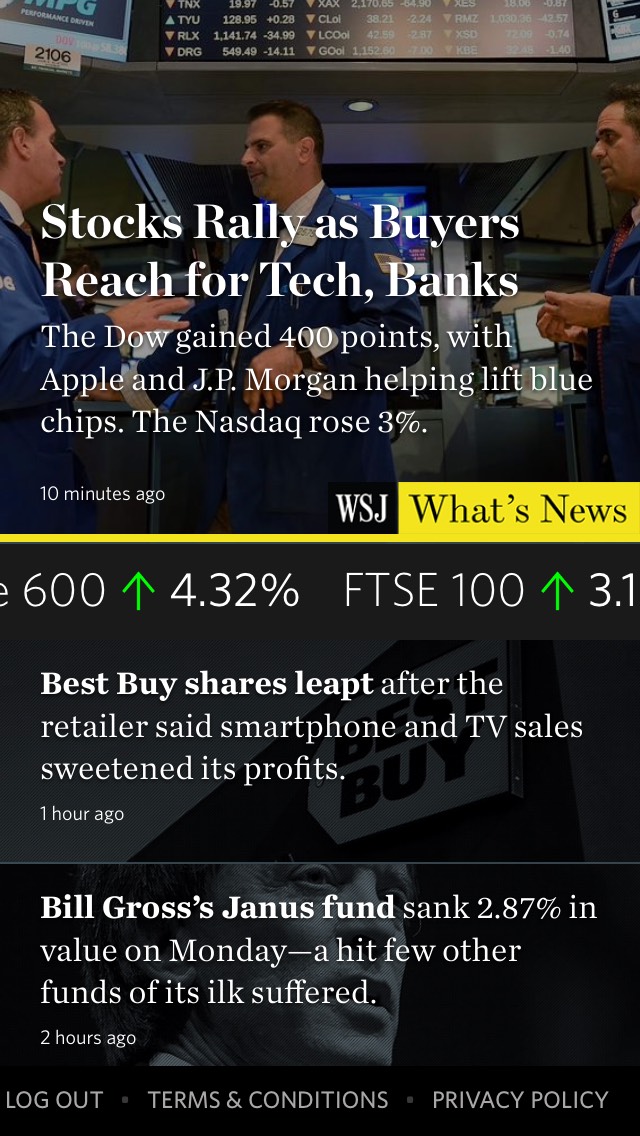 What’s News, The Wall Street Journal’s new digest app designed specifically for mobile subscribers launched today for iOS, on top of the existing catchall Journal app. (The new app is iOS-only, but the company intends to roll out an Android version later this year).
What’s News, The Wall Street Journal’s new digest app designed specifically for mobile subscribers launched today for iOS, on top of the existing catchall Journal app. (The new app is iOS-only, but the company intends to roll out an Android version later this year).
When we first previewed the app a few weeks ago, the Journal’s chief innovation officer Edward Roussel said the app was one of the company’s many new efforts to “think digital” and “think mobile,” in order to attract — and retain — subscribers.
“This is the first WSJ product truly for mobile,” Roussel said. “Twenty years ago, we were shoehorning the newspaper into web. In 2007, we began shoehorning that into a mobile device. And now mobile is becoming dominant — that’s the premise.”
An accompanying (mobile-optimized) morning briefing, which highlights in more detail “what to watch” for the morning and “what you missed” lives online and encourages readers to download the app or subscribe to the Journal.
What's News, a brilliant WSJ app that tells you top business news right now, launches today. http://t.co/I6FwyojnQf pic.twitter.com/KR9YQ85nA2
— edwardroussel (@edwardroussel) August 25, 2015
Congrats, @wsj @DowJones. The famed & beloved What's News Page 1 curation/navigation guide, now in a digital avatar https://t.co/VdUU63MKY6
— Raju Narisetti (@raju) August 25, 2015
Got a preview; looks great. https://t.co/LUs4undzt8
— Jeff Jarvis (@jeffjarvis) August 25, 2015
Got the WSJ What’s News app working. It’s meant to be the Top 10 Stories, but you can’t swipe from one to the next. Weird.
— Felix Salmon (@felixsalmon) August 25, 2015
Oh and now the WSJ What’s News app has interrupted my newsreading with a whopping great animated full-screen Cartier ad. Thanks, Rupert!
— Felix Salmon (@felixsalmon) August 25, 2015
Great day for @WSJ to launch it's new "What's News" iPhone app: https://t.co/ak5838uq7V
— Ben Casselman (@bencasselman) August 25, 2015
Leave a comment